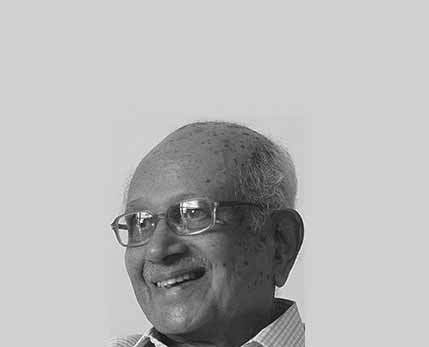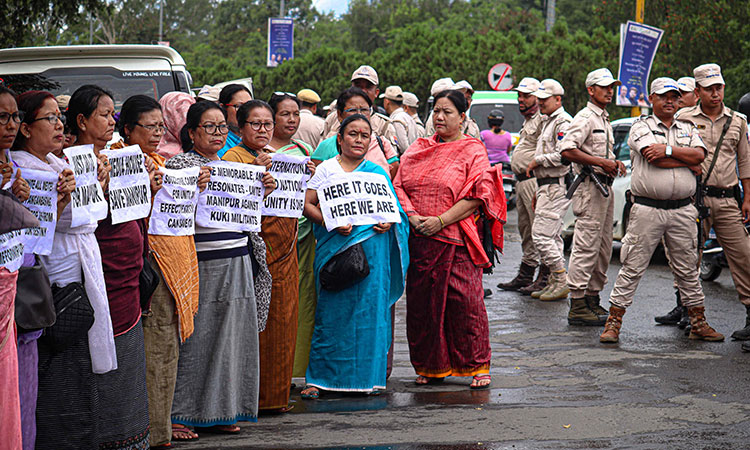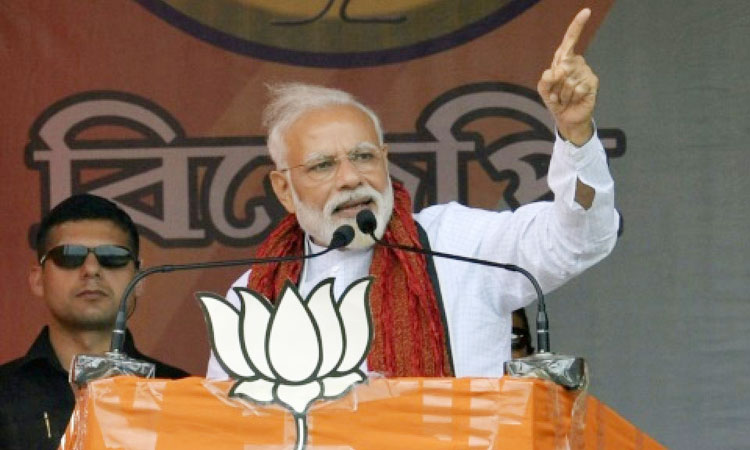Modi-Shah plan for hat-trick in 2024 under way

BRP Bhaskar
@brpbhaskarIndian journalist with over 50 years of newspaper, news agency and television experience.

Amit Shah, Narendra Modi
In Gujarat, Modi’s home state, where it has been in power for a quarter century, the BJP is now involved in an Assembly election. Its main task there is to overcome a multiple anti-incumbency burden. Next year the party has to face Assembly elections in more states. Party leaders make no secret of the fact that they are giving the 2024 Lok Sabha poll higher priority than the Assembly elections that will come sooner.
The BJP replaced the Congress as the country’s largest political party after it rode to power at the Centre in 2o14, heading the National Democratic Alliance. Its victory that year — it won282 of the 545 Lok Sabha seats with 31.0 per cent of the votes polled — was made possible mainly by a civil society movement against alleged corruption during the decade under the Congress-led United Progressive Alliance government.
Under Modi, who called for a Congress-free India, there were large-scale defections from that party to the BJP in many states. Also, Central agencies instituted investigations into alleged irregular financial deals of some top Congress leaders. These led to raids and arrests but there has been no conviction so far.
Today the BJP is well-placed to fight elections. It is not only the largest party but also the richest. It is the biggest beneficiary of corporate donations. It has at its disposal the huge manpower resources of its ideological parent and mentor, the Rashtriya Swayamsevak Sangh.
To outsiders, all this is sufficient to conclude that the BJP is well set to get the hat-trick win it wants. But not to Modi, who is the party’s chief campaigner, and his alter ego, Home Minister Amit Shah, who is the chief poll strategist. They know their party’s weaknesses better than anyone else.
Many measures taken by the Modi regime in its second term such as the amended citizenship law and the abandoned farm laws had provoked much anger in the country. The party has presumably launched the 2024 campaign early to give itself enough time to counter such negative factors.
The BJP’s electoral history shows its MPs have a comparatively poor record in retaining the seats they won. Modi and Shah expect it to lose many “sitting” seats in 2024 too. The losses will be mostly in its northern and western strongholds.
Accordingly, they have made plans to grab new sears from the opposition in the southern and eastern states to make up for these losses and, if possible, improve its overall position.
Citing party sources, some media reports have said that a year ago Modi and Shah identified 144 Lok Sabha constituencies, which are now represented by opposition members, and assigned 40 Union Ministers, to cultivate them assiduously.
The BJP had previously conducted at least two similar outreach programmes, albeit on a small scale, with a great measure of success.
A year’s field work by paid RSS cadres is given credit for the BJP’s sensational 2018 win in the small eastern state of Tripura, which had been under Left Front rule for 25 years. The BJP did not have even one member in the previous Assembly.
After being defeated by Rahul Gandhi at Amethi in Uttar Pradesh in the 2014 Lok Sabha elections, Union Minister Smriti Irani nursed the constituency for five long years and captured the Nehru-Gandhi family’s traditional seat from him.
The current outreach programme is wider and more ambitious than the earlier ones.
Surveys are conducted in the 144 selected constituencies as well as some others regularly to ascertain the mood of the voters and identify the issues uppermost in their minds. The survey findings are analysed and appropriate responses conveyed to those in charge of the constituencies.







